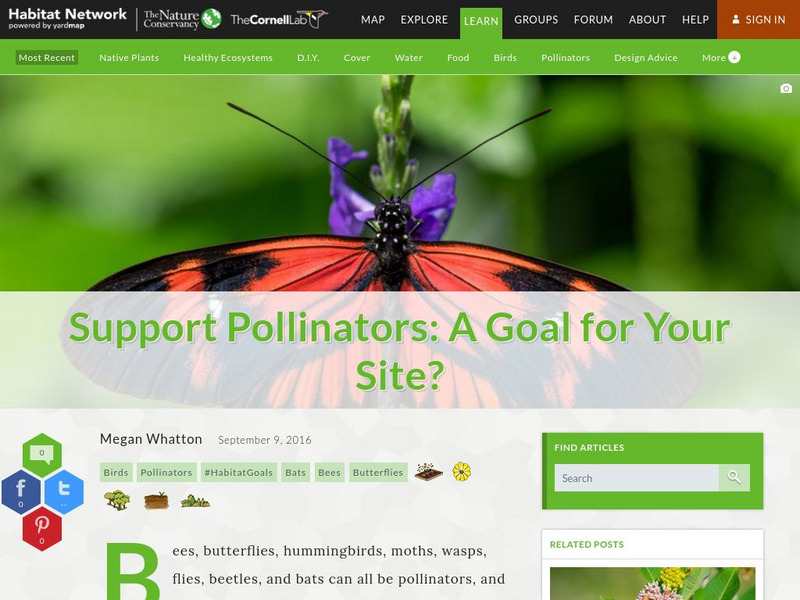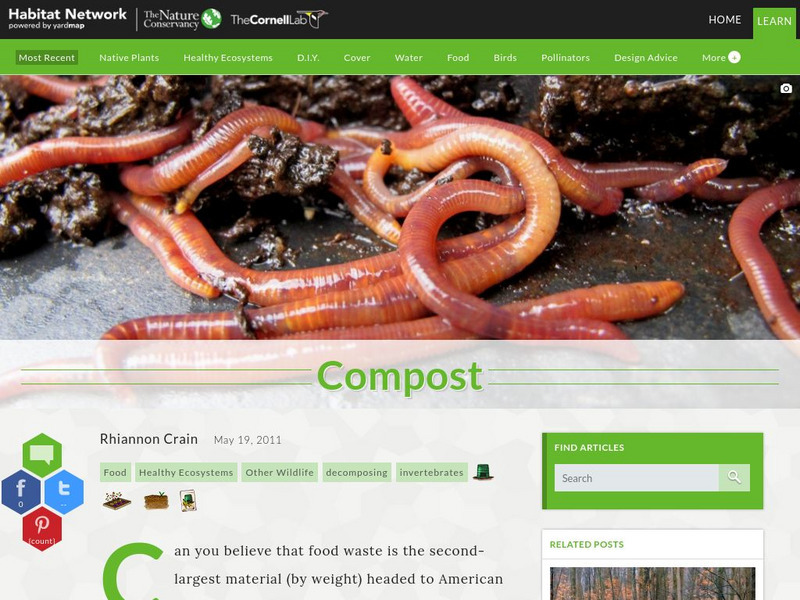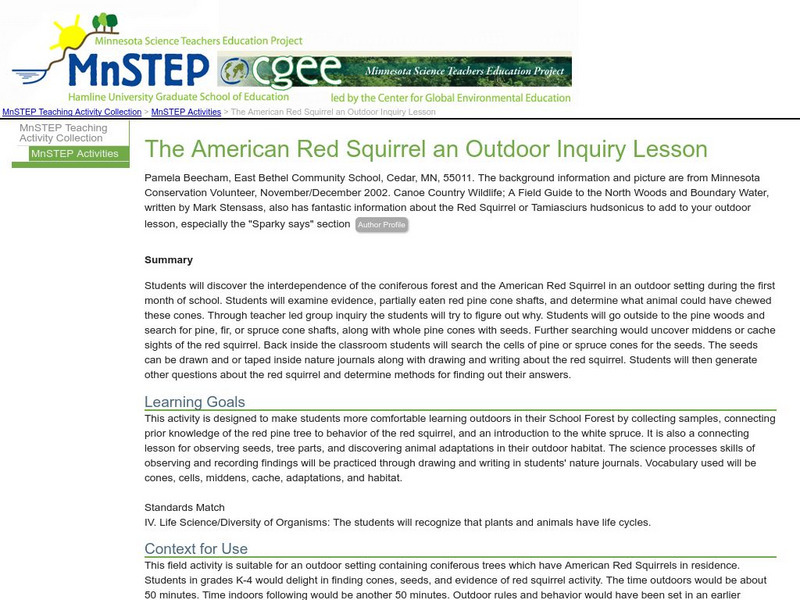Hi, what do you want to do?
BiologyWise
Biology Wise: Tips on How to Make a Plant Cell Model
Describes the steps for making a model of a plant cell in two different ways. The first way uses mostly sweet foods and the second way uses a shoebox, clay, and simple materials.
BiologyWise
Biology Wise: Simple Steps on How to Build a Plant Cell Model
Describes the steps in how to make a model of a plant cell using simple materials and sweet foods like jello and candy.
Cornell Lab of Ornithology
Habitat Network: Support Pollinators: A Goal for Your Site?
Find out the three easy steps citizens can take to support pollinators including providing shelter and nesting materials, food, and avoiding using chemicals like pesticides and fertilizers.
Cornell Lab of Ornithology
Habitat Network: Compost
Are people wasting yard waste? Why not turn a small corner of a backyard into a nutrient source that not only replenishes the soil but supports the base of the bird food pyramid.
Cornell Lab of Ornithology
Habitat Network: Install Edible Gardens
Find out the benefits of planting a garden that provides a sustainable source of food for people.
Science Fun for Everyone
Science Fun: Jack O Cano
Turn your pumpkin into a volcano science activity shows what happens when water, food coloring, dish soap, and vinegar are mixed with baking soda. Click on the link to watch Scientist Joe make the Jack-O-Cano experiment.
Alabama Learning Exchange
Alex: Beanie Baby Habitats Collaborative Project
With the booming market of "Beanie Baby" type stuffed animals being so prominent in students' lives, this project brings that interest into the classroom through the use of research, science, hands-on experiences, and technology. The...
NASA
Nasa Human Research Program: 21st Century Explorer
This NASA research program allows students to explore space topics using science, technology, engineering, and mathematics skills. Find twelve themes to investigate through video, song, and animation. Also find links to other NASA projects.
Hunkins Experiments
Hunkin's Experiments
Hunkin's Experiments is a group of simple cartoon illustrations of scientific principles. Some would work well in the classroom, but others have little value beyond entertaining students. All of the projects are easy to do and use...
Alabama Learning Exchange
Alex: Those Cells Look Good Enough to Eat.
This is a student led activity utilizing visualization and association to memorize the parts of animal and plant cells. Young scholars will work cooperatively to develop drawings to connect the parts of cells to one of their favorite...
Science Education Resource Center at Carleton College
Serc: Mn Step: The American Red Squirrel an Outdoor Inquiry Lesson
For this activity, learners are presented with red pine cones that have been partly eaten by the American Red Squirrel, a fact that is not divulged to them at this stage. After a discussion of the possibilities, the class takes a walk in...
abcteach
Abcteach: Ponds
[Free Registration/Login Required] The abcteach directory contains sample pages from their pond unit for non-members. Handouts are in PDF format.
Curated OER
The Science Behind Algonquin's Animals: Moose
Information is provided on the moose, its general appearance, weight, migration, food sources, habitat, and major predators. This is excellent information for a student research project.
Alabama Learning Exchange
Alex: Percents
This lesson plan explores the making of comparisons by using percents. In this lesson plan you will compare your class's favorite foods using percents. Students will use cooperative groups to answer follow up questions about the lesson...
Other popular searches
- Science Project Food Apples
- Science Project Food Chain
- Science Project Food Waste
- Science Project Food Rice
- Food Science Fair Projects
- Science Project Food Decay
- Science Projects Food Chain















